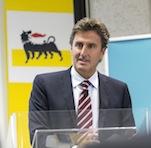
The chemical industry on a new journey towards the Circular Economy
Developing a more sustainable economic and productive model requires the direct contribution of everyone, from individual citizens to associations, institutions, governments and, of course, industries. In particular, the chemical industry, which generates value in many strategic sectors of the economy such as in the construction and medical sectors can play a leading role in the transition towards circular economy. The chemical industry has the technological expertise to develop new circular solutions. It is also a driving force for innovation along the value chain, since it operates at the base of the major industrial chains.
The EU vision and the commitment of the chemical industry
By 2030, the world population is expected to increase by another billion1. By the same year, the number of megacities counting more than 10 million citizens will rise to 43; these large cities will be particularly concentrated in developing countries. Hence, the increase in products, food and services will determine a rise in emissions and waste. Furthermore, the issue of plastics waste in the oceans is already at the center of public debate and requires urgent action. The European Union, placing itself at the forefront of the global transition towards a low-carbon and circular economy, has recently launched a number of initiatives aimed at increasing plastics sustainability, such as the European Strategy for Plastics.
The industry is showcasing its engagement by launching new voluntary initiatives, encouraging cooperation on a global level and across the value chain, and by supporting EU institutions with technical know-how so as to make sure that EU policies keep the pace with the most recent innovation and megatrends.
For example, in January 2018, PlasticsEurope announced its Plastics2030 Voluntary Commitment, which focuses on increasing re-use and recycling, preventing plastics leakage into the environment and accelerating resource efficiency. Furthermore, PlasticsEurope joined the global initiative Operation Clean Sweep Zero Pellet Loss, a voluntary program, signed also by Versalis, to prevent the dispersion of plastic granules in the environment, involving the entire supply chain.
Such a complex issue needs powerful vertical industry chain alliances with concrete initiatives. For this reason, it was recently launched the Alliance to help End Plastics Waste, an inter- national non-profit organization of companies including Versalis. With +25 members from the whole value chain, the Alliance aims at reducing and better managing plastic waste, with a commitment of 1.5bln $ investments over the next 5 years.
Circular Economy at Versalis
In line with Eni’s broader strategy, Versalis is developing a business model embedding the Circular Economy principles according to three pillars: life cycle and eco-design, diversification of raw materials and recycling of polymers.
Life Cycle Perspective and Eco-Design enable to enhance resource efficiency of products, over their entire life-cycle. A practical example is the recyclable synthetic turf developed by Versalis with partners of the value chain. Thanks to this industrial collaboration, the synthetic turf which is currently landfilled or incinerated at its end-of-life can be recycled and used as a secondary raw material for other applications in the sports sector, where high quality standards are required. Sustainability of this product has been assessed as the players in the value chain obtained the Product Environment Footprint (PEF) certificate.
Another example of eco-design is the recovery of industrial polyethylene packaging used in transporting Versalis’ products and their recycling for the production of secondary raw materials suitable for new packaging. The project allows to design a new circular scheme in collaboration with supply chain operators.
Diversification of raw materials, to find the right balance between traditional sources, renewables and secondary raw materials.
To give an example, Versalis has successfully tested the use of 20% post-consumer polystyrene products in its pilot plants in Mantua for the production of expandable polystyrene, used in the production of thermal insulation sheets, for a better energy efficiency of our buildings. Regarding chemistry from renewables, Versalis aims to create a completely integrated platform. Versalis recently acquired the “bio” activities of the Mossi & Ghisolfi group that, through the Proesa® technology for converting biomass into second-generation sugars, is able to produce “advanced” biofuels (obtained from non-food biomass) and, potentially, other chemical bio-intermediates.
Recycling of polymers through the development of innovative technologies carried on by internal R&I and partnerships. Currently, mechanical recycling is undoubtedly the technology in place, used on a large scale.
However, to achieve the EU targets, innovative chemical recycling technologies are needed to really close the loop, bringing back the polymer to the virgin material.
A research project is under development on a pilot scale for the chemical recycling of mixed post-consumer plastics deriving from separate collection of plastic waste, no longer separable. The project is carried out by merging chemical expertise for the feedstock pre-treatment and innovative refining technologies.
To conclude, circular economy is a strategic driver of Versalis business activities: we already embarked on this new journey towards sustainability goals also together with value chain partners, and we are ready to turn the challenges into growth opportunities for the society of today and especially that of tomorrow.




